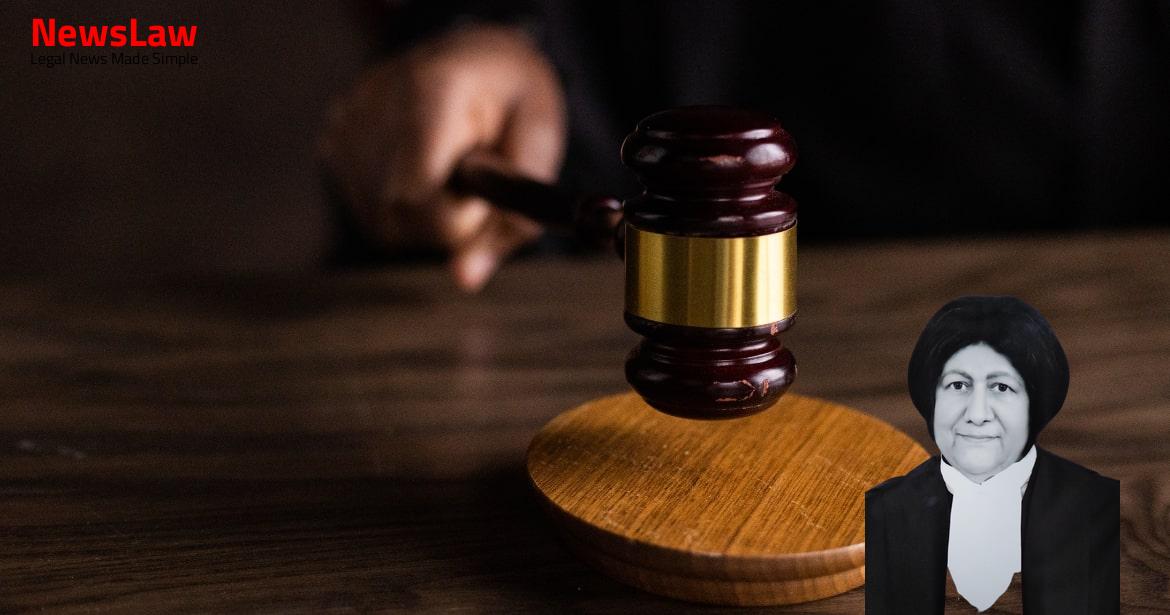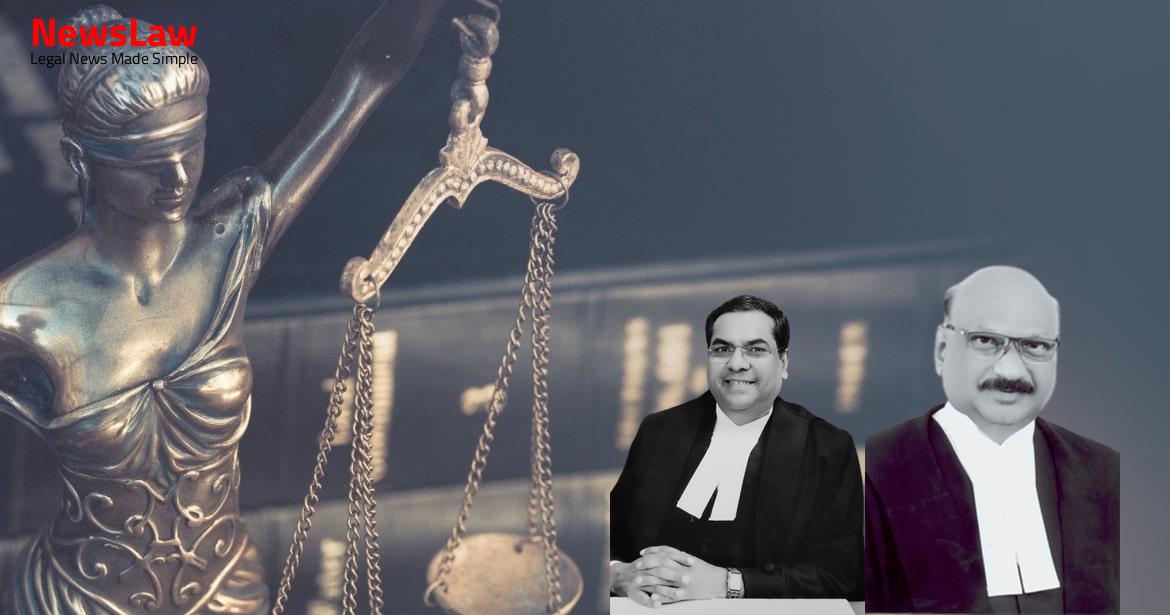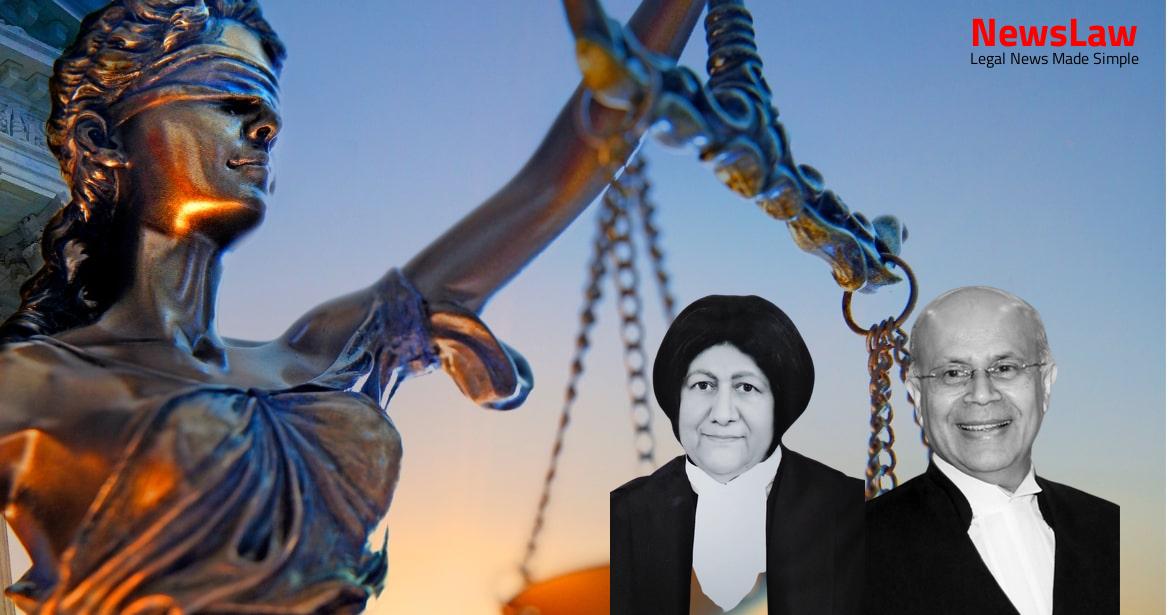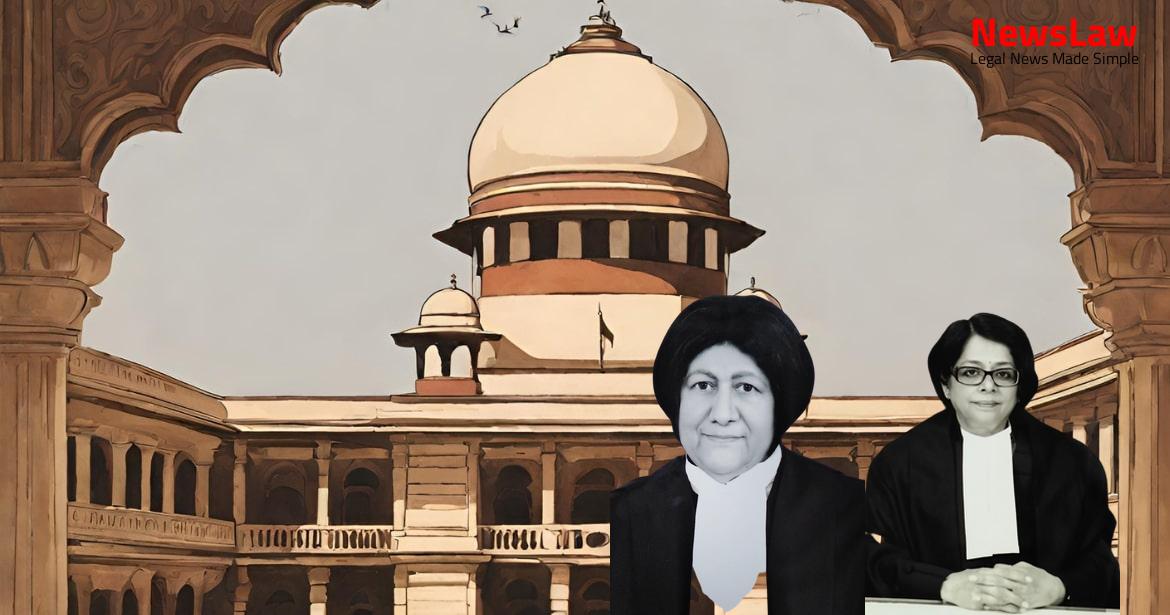Exploring the seniority dispute resolution case between Land Revenue Inspectors and the State of Rajasthan. This case delves into the complexities of seniority calculation based on vacancy years and recruitment years. Discover the key aspects of this Supreme Court judgment in our detailed analysis.
Facts
- Seniority-cum-merit promotees filed a petition before the Rajasthan Civil Services Appellate Tribunal for seniority based on year of vacancy.
- Tribunal judgment was accepted by the State of Rajasthan in 2016 resulting in seniority accorded based on vacancy year.
- Appellants denied benefit, claimed parity under Article 14, represented to the Board in 2015.
- Writ Petition filed before High Court raising issues on seniority computation based on vacancy year.
- Single Judge allowed the Writ Petition on 19 April 2018, setting aside State action, directing placement in seniority list based on recruitment year.
- Division Bench reversed Single Judge’s judgment on 6 August 2018, resulting in dismissal of writ petition.
- Appellants were appointed as Patwaris in the Revenue Department on 21 December 1993.
- Rule 284 was amended multiple times to regulate the mode of selection to the post of LRI.
- Despite being appointed against vacancies in 2008-09, 2009-10, and 2010-11, their names were not included in the provisional seniority list.
- A final seniority list computing seniority as on 1 April 2012 was issued on 12 May 2016.
- The appellants claimed they were placed below persons promoted against vacancies that arose after the year of vacancies against which they were promoted.
- Orders were issued promoting LRIs to the post of Nayab Tehsildar against the year of promotion in which vacancies arose.
- A grievance was raised due to the denial of benefits of a notification changing the criterion for determining seniority.
- The appellants appeared for a departmental examination in May 2013 and were declared successful for the post of LRI.
- On 31 March 2014, the appellants were promoted as LRIs in pursuance of working on that post.
- The issue led to the institution of a Writ Petition seeking a direction for declaration of appointments and seniority list placement.
Arguments
- The argument put forth by Mr. Paras Kuhad, the Senior Counsel for the appellants, highlights that the Division Bench’s decision did not grant the benefit of seniority based on the year of vacancy to those selected through the competitive examination route.
- Vacancies for the post of LRI in the years 2008-09, 2009-10, and 2010-11 were not filled in time, with no direct correlation between the year of vacancies and the competitive examination.
- Different streams of recruitment exist under Rule 284 of the 1957 Rules: clause (i) pertains to seniority-cum-merit, while clause (ii) involves a competitive departmental examination.
- The competitive examination process is deemed uncertain in contrast to the more stable seniority-cum-merit promotions.
- Persons who complete training have to undergo probation.
- Probation is a necessary step after training is completed.
- It is important for individuals to demonstrate their skills during probation.
- Probation allows for assessment of an individual’s performance post-training.
Also Read: CRPF Act: Validity of Rule 27 for Compulsory Retirement – Case of Head Constable vs. CRPF
Analysis
- Rule 171-A of the 1957 Rules deals with seniority and its determination on the basis of continuous officiation.
- Rule 171-A(2) prior to amendment embodied the criteria of continuous officiation for determining seniority.
- The amendment to Rule 171-A in October 2014 substituted sub-rule (2) to provide seniority based on the recruitment year of promotion.
- The deeming fiction cannot be extended to Rule 284(ii) situation as it requires candidates to fulfill specific eligibility conditions for competitive examination.
- Rule 284 provides for two streams of promotion: one based on seniority-cum-merit and the other on a departmental examination for in-service Patwaris.
- Rule 347-A and Rule 347-B of the 1957 Rules govern conditions of service and have overriding effect over other rules.
- Rule 13 of the 2001 Rules requires the appointing authority to determine vacancies occurring on April 1 of each financial year.
- The delay in convening Departmental Promotion Committee meeting should not prejudice eligible promotion candidates.
- The promotion takes effect from the actual date of promotion, not from the vacancy date.
- The amendment to Rule 171-A in October 2014 is clarificatory.
- The rules enumerated in Rule 347-A are subject to the provisions of the 1957 Rules, with specific provisions prevailing over others.
- Under Rule 284, candidates must fulfill qualifications for competitive examination eligibility.
- The principle of seniority-cum-merit promotion was progressively enhanced from 1981 to 1985.
- Candidates cannot claim seniority from a date when they were not borne on the cadre, except with explicit statutory provision.
- The 2001 Rules do not apply to LRIs appointed under the 1957 Rules, and seniority must be fixed under Rule 171-A.
- Deeming fiction can neutralize adverse effects caused by delay in governmental obligations.
- The provisions incorporated in Rule 171-A(2) should prevail over contrary provisions in the 1960 Rules.
- The 1960 Rules governed recruitment and service conditions unless separate service rules existed.
- Rule 9 of the 1960 Rules mandated a determination of vacancies and apportionment to each method of appointment.
- Any general order or amendment in the 1960 Rules also applied mutatis mutandis unless specified otherwise by the government.
- Rule 286 outlines the qualifications required for the position.
- Rule 287 mandates a competitive examination conducted by the Board for recruitment from existing Patwaris of the Revenue (Land Records) Department for entry into the training school as per the 1957 Rules.
- An amendment on 22 September 1977 introduced Part V-A containing Rules 347-A and 347-B.
- Rule 347-A states that pay, allowances, pension, leave, and other service conditions are to be governed by specified rules, including the Rajasthan Subordinate Services (Recruitment and other Service Conditions) Rules 1960.
- The view on the subject has been affirmed by a Bench of three judges in P Sudhakar Rao v U Govinda Rao.
- The principle stems from the decision of the Constitution Bench in Direct Recruit Class II Engineering Officers’ Association v State of Maharashtra.
- Jagdish Prasad decision was made under the 1979 Rules applicable to the Transport department.
- The principle was reiterated by the Court in State of Bihar v Akhouri Sachindra Nath and State of Uttaranchal v Dinesh Kumar Sharma.
- The Division Bench of the Rajasthan High Court was justified in concluding that seniority based on the date of vacancy accrual is not maintainable solely due to the absence of competitive examinations in those years.
- The decision aligns with principles established by the Supreme Court and is consistent with statutory rules applicable at the time.
Also Read: DAMEPL vs. DMRC: Curative Petition and Arbitral Award Restoration
Decision
- No merit found in the appeals
- No order as to costs shall be given
- Appeals are dismissed accordingly
- Pending application(s) shall stand disposed of
Case Title: GANGA VISHAN GUJRATI Vs. THE STATE OF RAJASTHAN
Case Number: C.A. No.-006007-006007 / 2019



